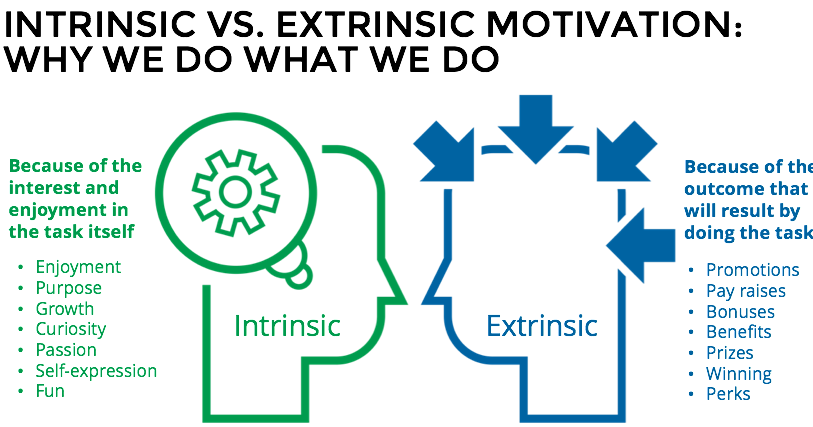What causes laziness and lack of motivation
6 Causes and Ways to Overcome It
Jump to section
Understanding how motivation works
Why are you lacking motivation?
How can you get back on track?
FAQs about motivation
Everyone experiences a lack of motivation at some point in their life. Whether you’re having a hard time finding a sense of motivation to do your laundry or work on the business pitch you’ve been thinking of, we all get into slumps.
But we can all learn to identify what causes a lack of motivation in daily life and how to help ourselves get back on track.
Understanding how motivation works
You developed strategies to increase your sense of motivation a long time ago. You didn’t even realize it, but they formed at a young age — long before you entered the workforce. Here are three examples to reflect on to better understand motivation.
Being motivated by “adults” no longer works when you are one
Did your parents or teachers yell at you to convince you to complete your daily tasks when you were young? Parents or teachers motivating you by punishing or reprimanding you if you didn’t meet their expectations isn’t sustainable in adulthood. This is extrinsic motivation.
But now that you’re an adult and you can’t get detention or be grounded, nobody is pressuring you the same way. This could be why you’re having a hard time finding motivation.
Being a people-pleaser undermines your motivation
Are you a people pleaser? Do you lack motivation? Little do you know, those things are related. If your motivation only turns on when you’re trying to do something for other people, you won’t have any left for yourself.
Even if you think you’re just a great helper, you’re training yourself to put others before your well-being.
Social media consumes your motivation
As you scroll through posts and posts, your need for self-esteem could be suggesting that you need to be more like people you see online. The images and lives shown are curated and often unrealistic. They may seem unreachable. Rather than motivate you, social media can be demotivating.
Even if you are motivated by what you see, the time lost can still cause you to lose motivation. Also, if you rely on comparison, when you take a break from social media, that motivation could be gone.
Also, if you rely on comparison, when you take a break from social media, that motivation could be gone.
Why are you lacking motivation?
It’s okay that your previous motivators don’t work for you anymore. This means you’re experiencing some personal development, and that’s good. It’s important to understand that no matter why you’re experiencing low motivation, there will always be strategies and people to help you find motivation again.
A few people more than happy to help are the coaches at BetterUp. We want to be there for you regularly to help your well-being and learn how to unlock your motivation again. To learn more about BetterUp, click here.
Everyone experiences a lack of motivation in different ways. What hinders some may not be an issue at all to others. The first step to beating your procrastination is to identify your motivation problems.
Think about which ones apply the most to you. Here are six causes for lack of motivation:
Spreading yourself too thin
Burnout is real. When you have too many things on your to-do list, it doesn’t encourage you to get them done. Your procrastination can stem from feeling overwhelmed with your daily tasks. It doesn’t matter if you’re working from home and think you have plenty of time to hustle; your energy and level of motivation can be exhausted from your couch, just like the office.
When you have too many things on your to-do list, it doesn’t encourage you to get them done. Your procrastination can stem from feeling overwhelmed with your daily tasks. It doesn’t matter if you’re working from home and think you have plenty of time to hustle; your energy and level of motivation can be exhausted from your couch, just like the office.
Doubting yourself
When you doubt your abilities, you don’t feel like your completed tasks are done right. It can be a struggle to feel that sense of motivation to get started. Try to tell yourself some positive affirmations to help you get off the right foot. Think about the qualities and characteristics that you love about yourself. Even if it’s not work-related, think about how you deserve to keep trying to achieve your goals.
Mental health issues
Low motivation can be a common symptom of depression, anxiety, and other mental health issues. You can practice self-help and self-care as much as you can, but you may find that seeking professional help is more helpful for your emotions. Online therapy is beneficial, especially during the COVID-19 pandemic. Just know that you’re not alone, and you have lots of loved ones who want to see you receive the best help.
Online therapy is beneficial, especially during the COVID-19 pandemic. Just know that you’re not alone, and you have lots of loved ones who want to see you receive the best help.
Lack of commitment
Take a step back and think about how dedicated or passionate you are about your work right now. Do you agree to do these tasks because you feel obligated? Identifying where your to-do list decreases your motivation helps you know where to add some spice. (And by spice, we mean something fun that gives you incentive and energy to complete your tasks).
Bad attitude
Things don’t always go the way we hoped, but that doesn’t mean you’ll stay in a rut forever. Focusing on bad things deters you from accomplishing tasks, and it can’t control you forever. You can be upset, but a lasting bad attitude will ruin your motivation unless you actively try to change it.
Not being specific enough
You may think you have specific goals in mind, but are they encouraging your motivation levels? Giving yourself clear directions is essential.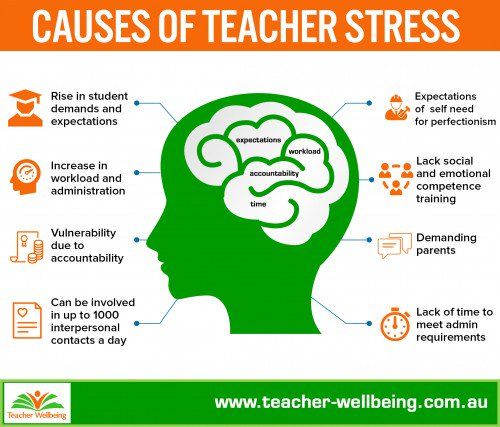 Without them, vague ideas will fade over time. You can’t just say you want to eat healthier. You need to be specific about what you want to achieve and outline precisely how you’re going to do that.
Without them, vague ideas will fade over time. You can’t just say you want to eat healthier. You need to be specific about what you want to achieve and outline precisely how you’re going to do that.
How can you get back on track?
Now that you know what can cause a lack of motivation, you need to learn techniques to start finding your motivation again. Repeating positive affirmations will only take you so far.
Each tip may not be for you, but try and find at least one that you can start practicing:
- Listen to podcasts that share positive, encouraging stories.
- Surround yourself with people in your life who are also working on goals and share progress and challenges.
- Give yourself incentives or rewards for accomplishing tasks.
- For every task you do that you don’t like, do something that makes you happy.
- Break your to-do list into manageable sections.

- Make your tasks into habits in your daily routine.
- Get outside for a walk to center your focus.
- Be kind and compassionate to yourself.
- Argue the opposite when you think negative thoughts.
FAQs about motivation
Are you wondering about other common questions people lacking motivation ask?
What’s the importance of having a challenging job to feel motivated?
Without any challenges, you won’t have anything new to work toward. If all of your tasks are easy, you won’t have any incentive to do better. Regularly throwing in a challenge can motivate you to learn something new, sharpen your skills, and try new experiences.
What things affect my motivation?
Plenty of things can affect your motivation. The weather, people around you, how hungry you are, and more impact your motivation levels. Pinpointing what impacts you the most is challenging, but it can help you get back on track. Next time you lack motivation, pay attention to your surroundings.
Next time you lack motivation, pay attention to your surroundings.
How can I help someone that’s feeling unmotivated?
One of the best things you can do for someone lacking motivation is to support them when and how they need you. If they’re struggling against a mental illness, you can suggest seeking professional help. If they need someone to hold them accountable for their daily tasks, you can do that too. Show up for them in the ways that suit them; everyone’s needs are different.
The Difference Between Laziness, Lack of Motivation, and Depression — With Chelle
Laziness, lack of motivation, and depression are all completely different from one another, but often look quite the same. Each can potentially trigger and support one another. You can be feeling a combination of these behaviors at the same time, but how do you figure out which is which?
What's the difference between all three? First, figure out what exactly you are feeling and categorize it.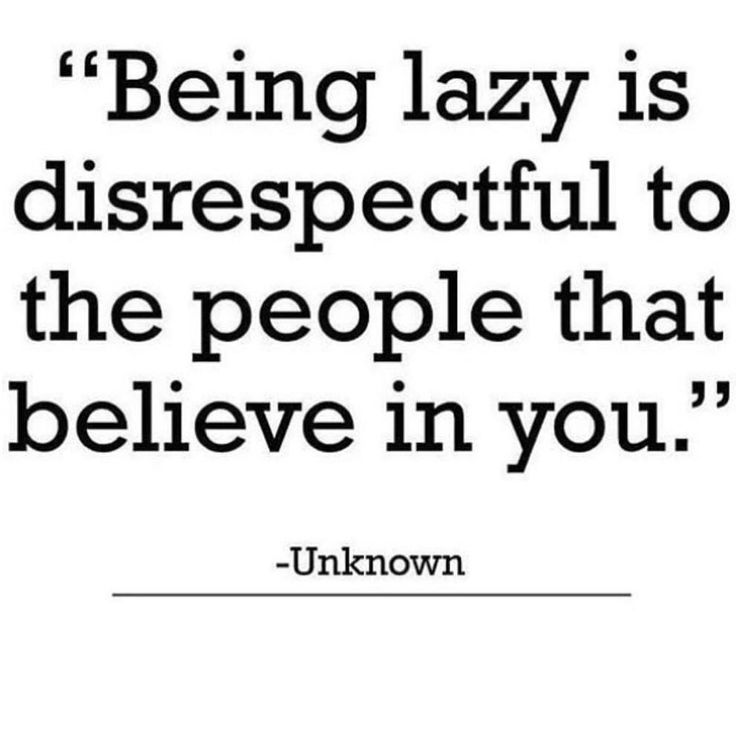 Below are some symptoms that might help you determine if it's laziness, lack of motivation, depression, or possibly a combination.
Below are some symptoms that might help you determine if it's laziness, lack of motivation, depression, or possibly a combination.
Laziness
Being lazy has an intention. It’s a preference. You want and enjoy doing absolutely nothing. And that’s not necessarily a bad thing. Sometimes you just need a lazy day in order to relax. However, when it comes to daily tasks, laziness begins to have a different impact. You have desire, but aren’t willing to put the effort in.
If you’re unable to do nothing, you often find the quickest way to do things.
You don’t mind poorly executed work as long as it’s finished.
You’d rather have someone else do the work.
You enjoy and prefer doing unproductive tasks.
You are a master at procrastination.
You do what you want instead of what is actually required.
Lack Of Motivation
Lack of motivation is essentially lack of passion. There are no goals, desire, or willingness to work. You simply don’t do anything, there is no faking it like laziness does. Lack of motivation is usually a deeper psychological problem and could have some elements of depression.
There are no goals, desire, or willingness to work. You simply don’t do anything, there is no faking it like laziness does. Lack of motivation is usually a deeper psychological problem and could have some elements of depression.
Your lack of motivation is a reaction to your current situation. It can be triggered by being picked on, put down, lack of clear direction, not living up to expectations, or always being told what to do. In time, this leads to losing any passion you might have had previously.
You enjoy progression, but just aren’t feeling it at the moment.
You dislike things that aren’t beneficial.
You are a perfectionist, which can lead to procrastinating.
You procrastinate because you have no interest in the project.
You are unproductive in order to escape, not for enjoyment.
You are hardworking when you are motivated.
Depression
Depression is a serious mental illness that doesn’t go away after a few days or weeks. Someone who suffers from depression doesn’t want to feel that way, but it is out of their control. There is simply no feelings of desire or hope. They’ve lost all concept of meaning in their life, of time, of responsibilities. It just doesn’t matter.
Someone who suffers from depression doesn’t want to feel that way, but it is out of their control. There is simply no feelings of desire or hope. They’ve lost all concept of meaning in their life, of time, of responsibilities. It just doesn’t matter.
If you are experiencing a combination of these symptoms you should seek help right away. If you or anyone you know is thinking about suicide or has a plan to carry out suicide, please call the National Suicide Prevention Lifeline.
You have lost interest in daily life to the point of feeling emotionally empty.
You feel irritable and restless; your tolerance levels have decreased.
You feel sluggish or drained and need to take plenty of breaks.
You have difficulty concentrating and making decisions.
You either have no appetite or overeat, which can cause weight fluctuations.
You have little to no care for personal hygiene or keeping your space clean.
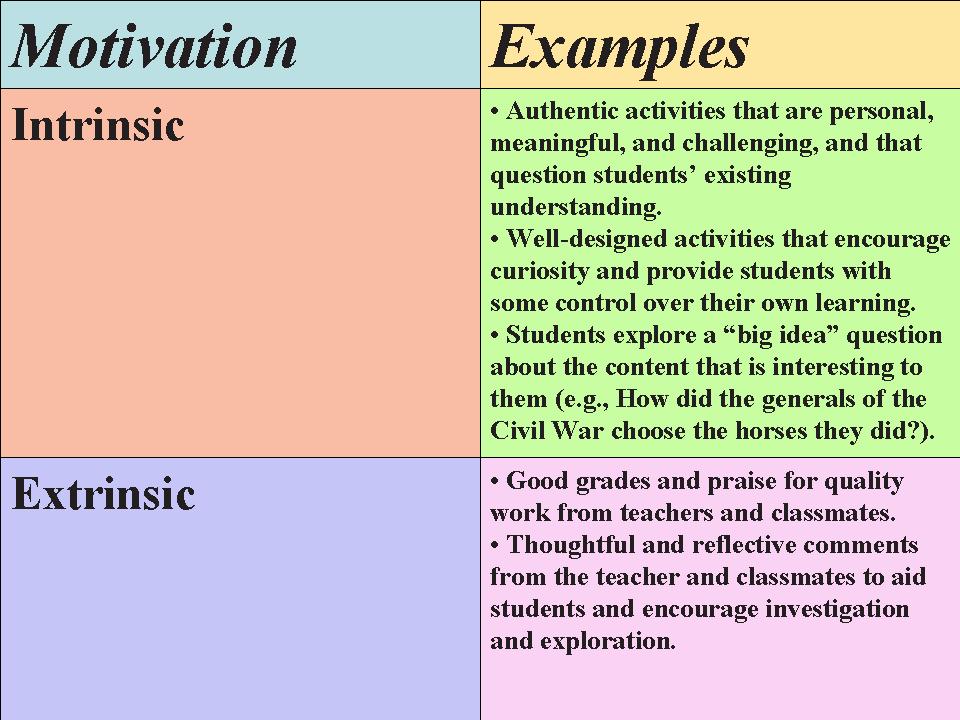
You engage in escapist behavior such as substance abuse, overspending, or other dangerous activities.
Helpful Strategies
While there isn't necessarily an immediate cure for any of these, you can still alleviate some of these symptoms with a little bit of effort.
So, what do you do if you're just lazy? Make working a habit. Create a set schedule where you can focus on your tasks and decrease the amount of distractions. Make your goals manageable and lean on your strengths. Afterwards, rewards yourself with what you actually want to do!
Lack of motivation can be a bit more tricky. What is causing your unmotivated state and how can you fix it? Figure out what truly brings meaning to your life and what actually motivates you. It might be easier said than done, but if you're not enjoying what you're currently doing try and take a step towards what you love either by incorporating it into your life as a hobby first or taking a few new classes to learn more about your passions.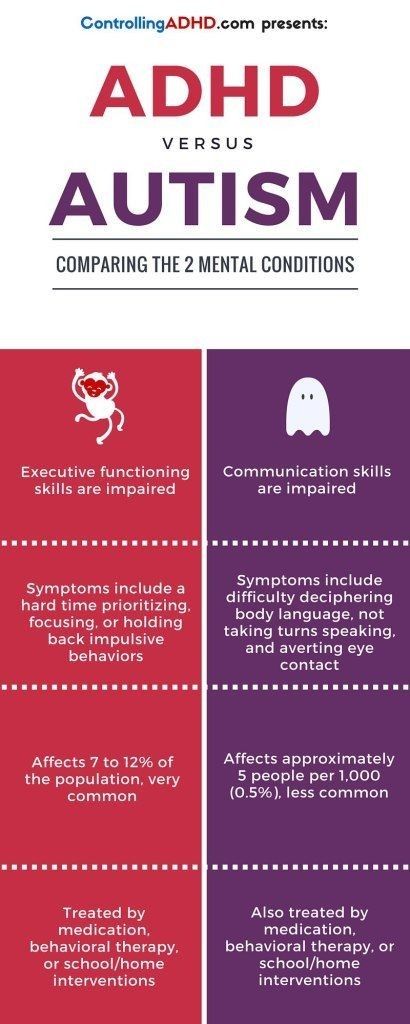
Depression is serious. Seek professional help in order to be properly diagnosed. A doctor or therapist can equip you with the proper tools and coping mechanisms.
-
I can only speak from my own mental health journey, everyone copes differently. However, I’ve found it most helpful to stay consistent in recognizing my own needs. I’ve written several other posts with some helpful tips for alleviating your struggles. Articles are listed below.
Laziness, motivation and goal achievement - books and podcasts
Daria
Fomina
About achieving goals in simple words
When something doesn't work out, we often blame ourselves for laziness, lack of willpower and lack of effort. "Inde" talks about the non-obvious reasons for the disappearance of motivation and offers solutions.
Everything went wrong
Expected to get a promotion in six months at a new job, but a year later the position is still the same.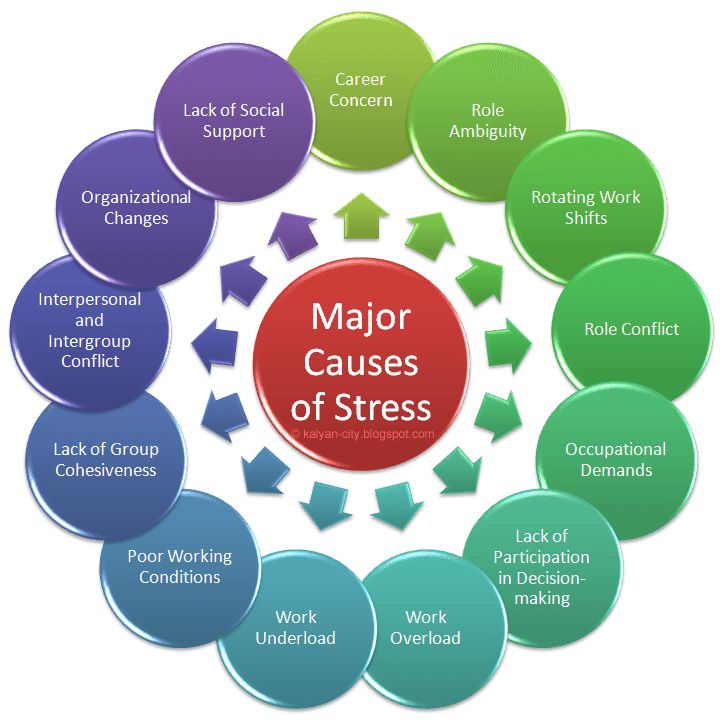 They created a blog on Instagram and expected the audience to grow to ten thousand in two months, but the numbers stuck in place. When we set a goal, the brain automatically calculates the costs that it will take to achieve it and predicts the result. If it turns out that more time and effort is required than planned, we feel frustrated and lose the desire to continue. nine0003
They created a blog on Instagram and expected the audience to grow to ten thousand in two months, but the numbers stuck in place. When we set a goal, the brain automatically calculates the costs that it will take to achieve it and predicts the result. If it turns out that more time and effort is required than planned, we feel frustrated and lose the desire to continue. nine0003
The decision is to accept that everything went wrong and see the potential in it. The method of positive reappraisal is described in the book "Burnout". Even if the goal has not yet been reached, the situation has changed, and you are no longer at the starting point. We do not live and work in greenhouse conditions - not all circumstances can be controlled. You have traded invested time for experience and skill—stopping or failure can be seen as part, not the end of the journey.
Single target
The definition was created by Nikita Maklakhov, the author of the podcast “Will be Done”. A one-time goal is a goal that is detached from your normal lifestyle. Running a marathon, not eating sweets for 21 days, learning a few everyday phrases in English in order to go on vacation are most likely one-time goals. In the beginning, you feel inspired and put in a lot of effort, but soon you lose interest. You have to force yourself to perform the necessary tasks (go to training or understand grammar). nine0004
Running a marathon, not eating sweets for 21 days, learning a few everyday phrases in English in order to go on vacation are most likely one-time goals. In the beginning, you feel inspired and put in a lot of effort, but soon you lose interest. You have to force yourself to perform the necessary tasks (go to training or understand grammar). nine0004
The solution is to build the goal into the context of life. In the case of a marathon, the path to the goal will be easier if you make running a part of your daily routine. Run in the morning, starting with small distances, join the running community, find like-minded people.
It is important that the goal is inscribed in life or life is built around the goal. If healthy eating is a way of life and what you consider important in the long run, you are unlikely to have to put in much effort to give up sugar for a week and fight the temptation to treat yourself to a chocolate bar after every workout. nine0004
The goal is not yours
Tanned and enlightened friends have returned from Bali and describe incredible sunsets, calling to join spiritual practices. It was decided to save up and go — to look for places of power and comprehend Zen. At the beginning, the sunny picture invigorates, and the goal inspires. But over time, the image of palm trees and smoothies fades, and the bank app dispassionately states that you abandoned the piggy bank and fell behind the plan.
It was decided to save up and go — to look for places of power and comprehend Zen. At the beginning, the sunny picture invigorates, and the goal inspires. But over time, the image of palm trees and smoothies fades, and the bank app dispassionately states that you abandoned the piggy bank and fell behind the plan.
The reason may be that this target is not native. Someone dreams of spending a vacation on an insta-suitable beach in the atmosphere of a creative party, doing yoga at dawn and having fruit dinner. And you, perhaps, would prefer to fly to Poland to a concert of your favorite band, eat trdelnik in Prague, go to Kamskoye Ustye, or even stay at home. nine0003
Solution - when choosing a goal, make sure that it reflects exactly your desires and vision - relaxation, pleasure and life. If the goal is “yours”, you look forward to achieving it and strive to speed up the process. Then it is much easier to give up dinner at a restaurant or coffee to go in favor of savings.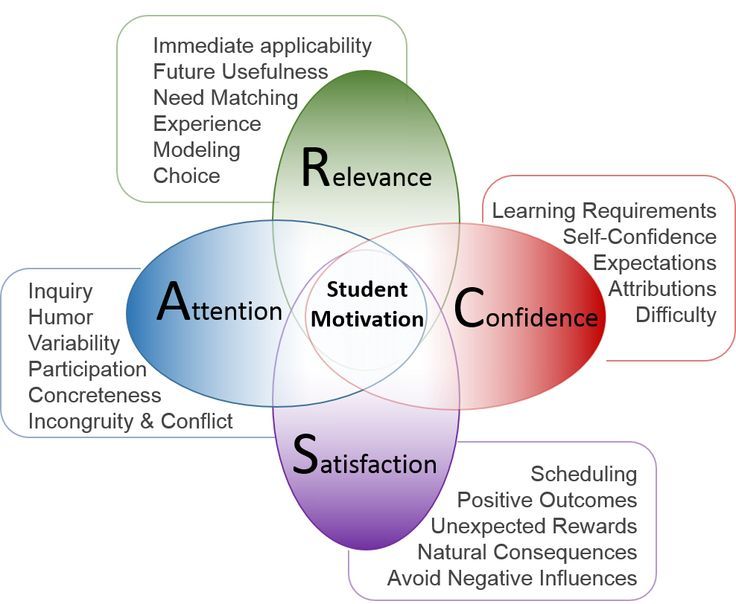
The goal is clear, but it is inaccurate
If you still want to go to Bali and want to improve your shape, it is important to make a clear plan. Losing weight by summer is not a specific goal. To lose three kilograms by June - more precisely, but not enough. What specific actions will you take? If there is less, how much less? Move more - what kind of activity will you add and how? Until the steps are defined, the process can feel drawn out and blurry. nine0004
Solution - specify. For example, outline a plan of three workouts (on Mondays, Wednesdays and Fridays). And set a limit of one dessert per week and no sugar in tea or syrup in coffee to eliminate empty calories.
If the goal is decomposed into actions, it seems achievable and close. It's easier to stay motivated when you're checking things off your list rather than just walking in a certain direction. You can track progress and be proud of yourself. nine0004
The goal is too difficult or vice versa
We are taught to dream big and set ambitious goals.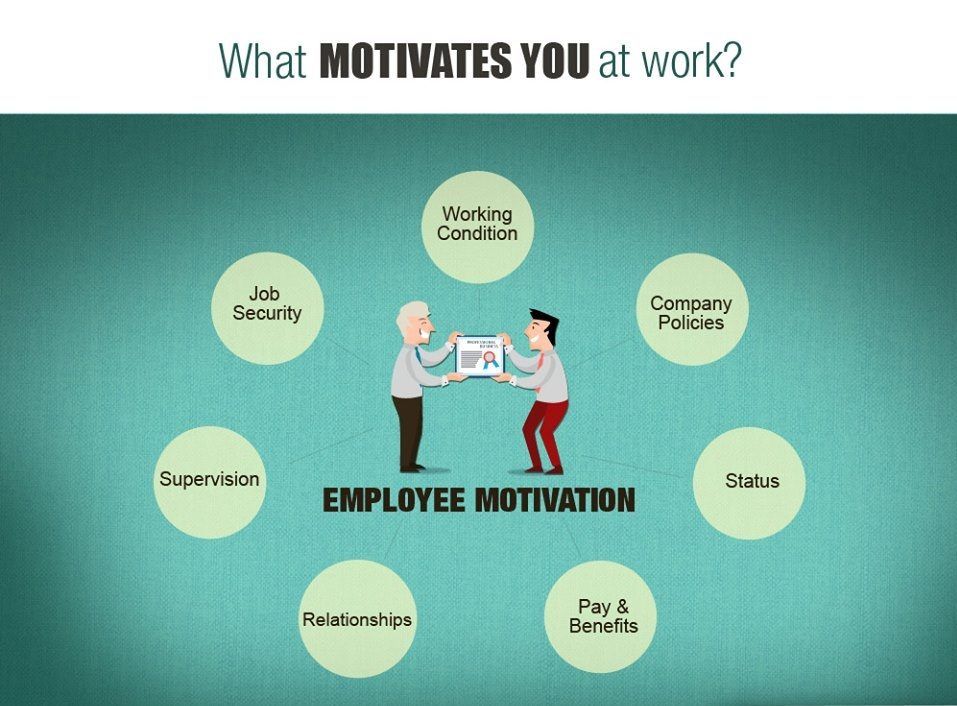 But if the goal is too big or there are too many new actions associated with it, the brain will turn on the resistance mode. The need to deal with something new and complex promises serious energy costs, and the ancient - reptilian - part of the brain perceives the loss of energy as a threat. This may explain procrastination.
But if the goal is too big or there are too many new actions associated with it, the brain will turn on the resistance mode. The need to deal with something new and complex promises serious energy costs, and the ancient - reptilian - part of the brain perceives the loss of energy as a threat. This may explain procrastination.
A goal that is too simple is also not good - what is obtained easily and quickly usually does not bring pleasure and seems predictable and boring. nine0004
The solution is to challenge yourself with a moderate challenge. One that will be optimal for you in the current conditions. If the whole apartment needs repairs, but the thought of the scale, estimates and hours at Leroy Merlin leads to melancholy and stupor, a productive solution would be to start with one - the most difficult - room.
The book The Big Carrot Method tells about this approach to goals.
Illustrations: Sergey Kotov
How to live
Local.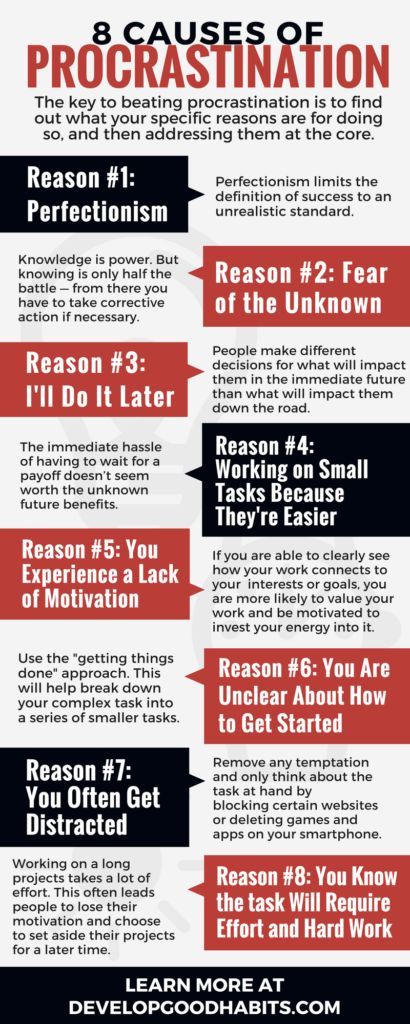 Five businesses from Tatarstan and the same number of discounts for Inde readers
Five businesses from Tatarstan and the same number of discounts for Inde readers
Discounts on educational toys for children, New Year's corporate party and clothes with Tatar inscriptions
07.12
How to live
Work question. Waiter at a rock bar, art director at a creative agency, editor at a regional publication and SMM manager at a beauty studio
Career opportunities in Kazan from January 30 to February 6
? How about using it as a free coworking space? Garage Museum Library staff
Inner feeling of adequacy to the place
20.05
How to live
Guide. Where to buy and not buy Easter cake for Easter
The most delicious dough, the largest amount of candied fruits and fudge instead of glaze
29. 04
04
Popular
Laziness - mechanism The work week begins for most Russians and the winter session is approaching. In this regard, I decided to describe the detailed
mechanism of human laziness . nine0003 However, I want to reassure you, laziness is only a manifestation of the work of our subconscious, which means that it can be controlled and “tuned” as you wish. You can see for yourself when you understand the mechanism of its occurrence. Laziness is the unwillingness to do something. Technically speaking: laziness is the lack of motivation of the psyche to perform a certain sequence of actions in order to achieve some previously known goal. From here we can immediately see the three components of the mechanism of laziness, each of which can create it:
1. Reference point.
2. Procedure.
3. The ultimate goal.
As soon as there is an imbalance (starting point), the person forms the final goal, which is the restoration of the initial state (comfort), and depending on the experience of the person (his prediction models), the person chooses the course of action to achieve the goal.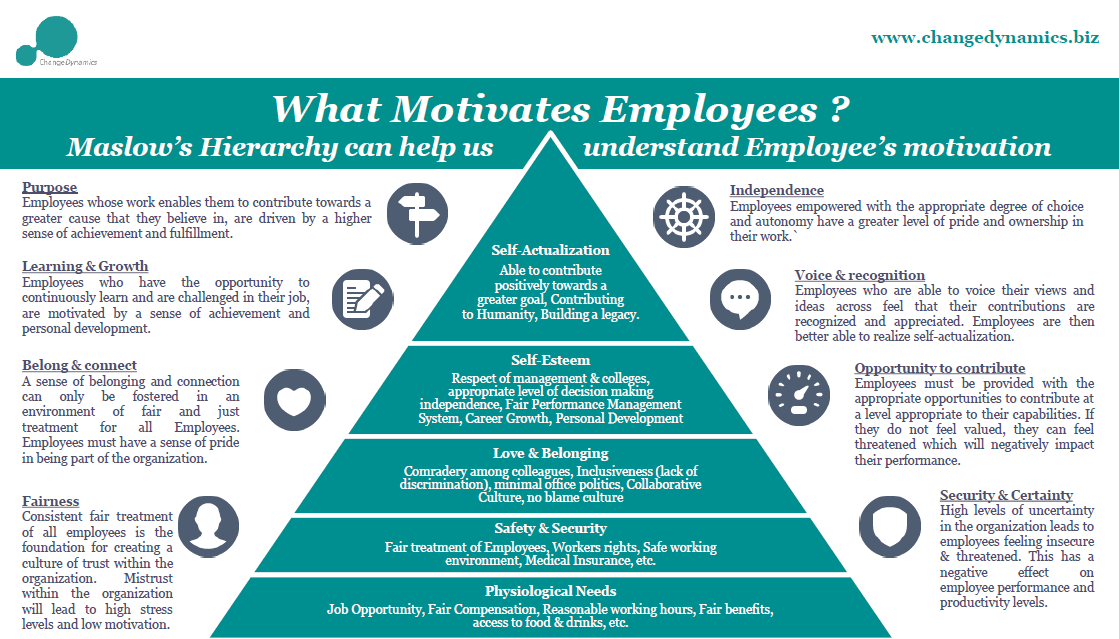
Let's analyze each item separately.
Reference point
The reason for the occurrence of any action must be a violation of the balance of the psyche (in particular, a violation of human homeostasis), which must be restored. The nature of the human body motivates us to the maximum for the simplest actions that are important for survival, which is why few people are too lazy to “eat if they are hungry.” In the field of basic human instincts, laziness does not arise. nine0003 In the case of more complex behavior that a person has, everything is much more ambiguous.
For example:
The wife nags her husband, who for several months "has not brought a penny into the house" and sits playing WOW: "Go get a job!". Husband is lazy. The reason for laziness: everything suits him anyway, except for the constant reminders of his wife. But since the opportunity to do nothing and play is more pleasant and valuable for him than irritation from his wife’s words, he will continue to sit and be lazy. nine0004
nine0004
Any action must have a starting point: necessity, inconvenience, need, etc. This point of reference should be precisely individual, and not imposed. You will only do something if something really bothers you. This point closely intersects with the “Ultimate Goal”, since the starting point always unambiguously determines which goal should be achieved.
In our example, the husband will really stir only when he runs out of food, the Internet is turned off for non-payment and, in general, “the oxygen is cut off”. nine0004
A separate important point is the current state of a person, since it also affects the starting point for choosing behavior. Even if you are motivated to achieve a goal, but are simply physically tired or emotionally involved in some problem, motivation may also fall, but this is more often associated not only with laziness and only indirectly relates to the topic of the article.
Procedure
The most common cause of laziness in the current society is the ambiguity of the order of actions, i.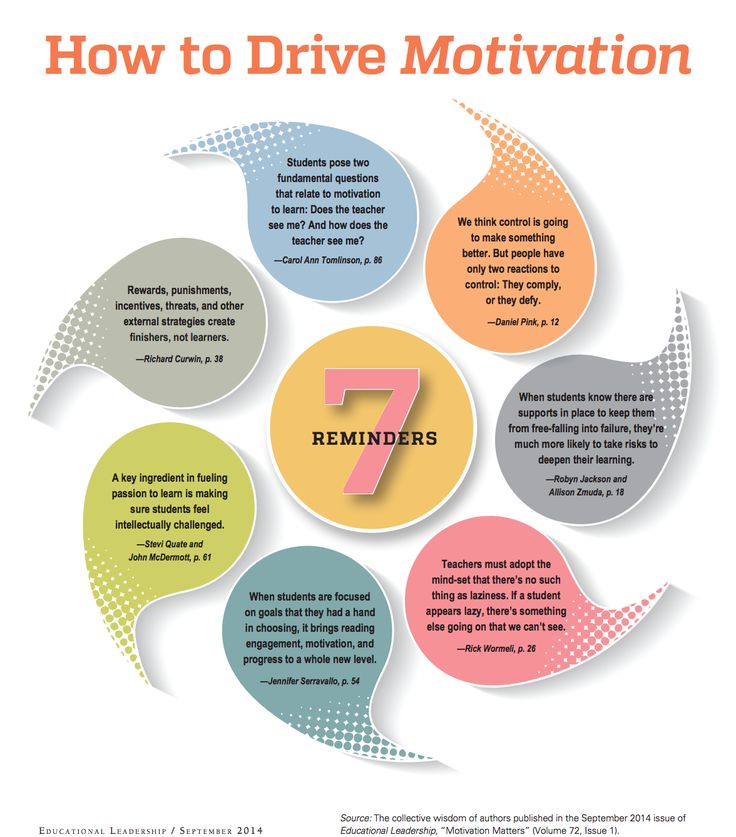 e. way to achieve the goal. A person will not be internally motivated for certain actions if his subconscious tells him that there is a more effective way: faster, requiring less resources and effort, etc. nine0003 For example:
e. way to achieve the goal. A person will not be internally motivated for certain actions if his subconscious tells him that there is a more effective way: faster, requiring less resources and effort, etc. nine0003 For example:
The office worker is lazy to do his job at the workplace. He has a starting point (the work needs to be done), but he is too lazy. The reason for laziness is that he knows that it is not necessary to do this work now, but you can just sit on Vkontakte. He saves his resources.
It is very important to take into account the fact that the subconscious is primarily guided by fast prediction models, that is, what will happen in the near future or is happening now. Long-term prospects are much less motivational, as the subconscious perceives them as less probable, and therefore not a priority, "time will tell." nine0004
For example, a student's preparation for a session increases motivationally as the session itself approaches. The motivation of an office employee increases significantly as the decision to award him an award approaches.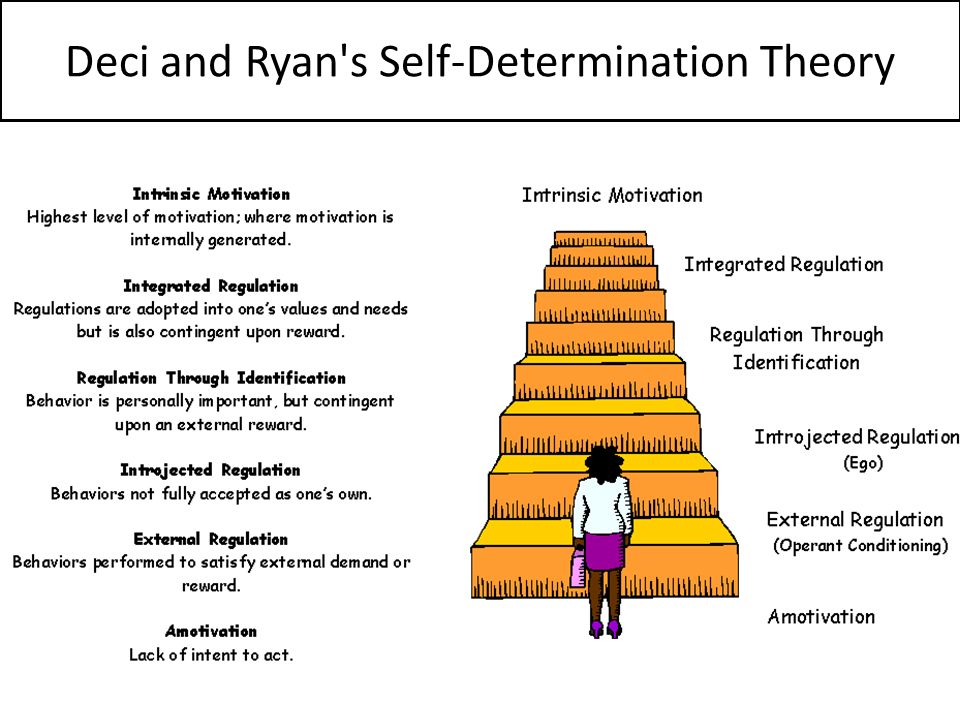
Again, it is important to take into account the moment that if the student's motivation is not knowledge, but "painting in the grade book", then the ways to achieve them will be different for him. For example, not to prepare and learn the material, but to "appease the teacher." That is why, if a student at least once managed to get at least one exam "for free", then the likelihood that he will stop preparing for other exams increases significantly, because motivation drops due to the formation of a new more resource-efficient strategy and a change in ultimate goals. nine0004
Destination
The ultimate goal completely determines which strategy will be chosen. Also, the ultimate goal should always be tied to the values and needs of the person.
In the human community, a learning mechanism is very common, in which a person is instilled with goals, the value of which he does not realize for himself.
For example: Parents tend to tell a student that he must get a diploma in order for him to have a higher education.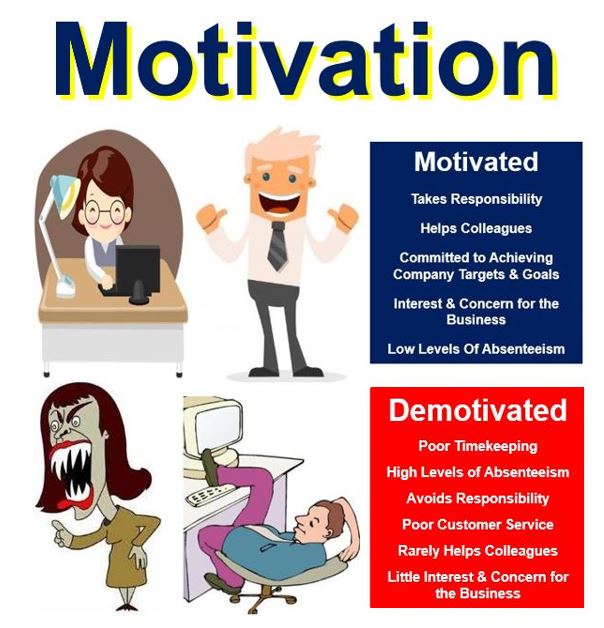 No motivation will arise from such “inculcating a goal”. The student simply will not subconsciously understand what is the connection between his needs and the “piece of paper”. The worst option is if the student is motivated to study at the institute with the goal of "if only the ancestors did not buzz." nine0003 What will be the goal, so it will be achieved by a person.
No motivation will arise from such “inculcating a goal”. The student simply will not subconsciously understand what is the connection between his needs and the “piece of paper”. The worst option is if the student is motivated to study at the institute with the goal of "if only the ancestors did not buzz." nine0003 What will be the goal, so it will be achieved by a person.
By the way, if you are trying to form motivation in a person, even in your own child, develop his prediction models so that his subconscious and consciousness themselves understand the importance of these actions. Then the person himself "rushes" to achieve it.
It is also important to take into account the fact that the goals that you set for another person can often be completely inadequate and even harmful to him, since your experience is different from the experience of this person. nine0004
Conclusion
All these points are intuitive and obvious, but most of us prefer to ignore them with consciousness and are guided only by sensations.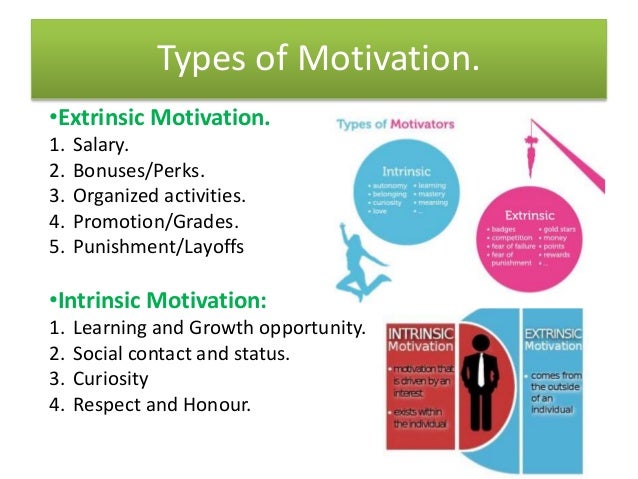
This is the most general mechanism that describes almost all cases of laziness. There are even rarer variations that are already associated with mental problems, but this is a separate conversation.
If you have determined all these points in detail, worked through them with your consciousness: found the true starting point, determined what kind of goal you are pursuing, in what way your subconscious mind prompts you to achieve this goal, then no laziness will arise in principle. nine0096
Consciousness does not operate with feelings, it “realizes”. The subconscious mind, on the other hand, tries to lead us through life in an optimal way, more precisely, in the way that it considers optimal based on past experience, and it does this with the help of feelings, including laziness.
Postscript
As I mentioned in the last article, these notes are created as part of the HS2.0 project (I hope I can withstand the habraeffect :). In part, this is, of course, advertising, but the goal pursued by this project is not to earn money and create traffic, but to provide information about the psyche in a simple and absolutely free way, because we are all people.